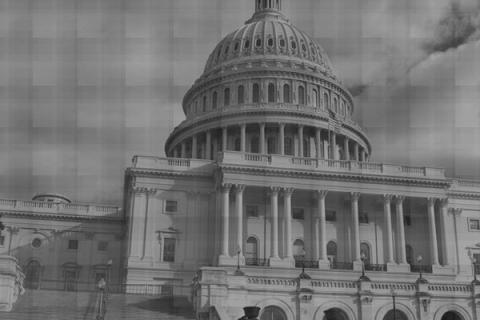 spirit of america / Shutterstock.com
spirit of america / Shutterstock.com
A president's second term is their greatest opportunity to create their legacy. President Obama set a progressive agenda in 2009, but was met with staunch Republican opposition. Republicans claimed Obama was pushing the limits of executive powers and Democrats were labeling their opponents as obstructionists. It could be said that political gridlock was the number one issue in Washington over the past four years. Tweet it: Tweet
In Obama's first term he began his controversial push for health care reform and did more on climate change than any president before him. His economic policy was bent on stopping massive job losses and reinvigorate a depressed economy. Obama's second term legacy may be tied to the economy, but there are other areas he could leave a lasting impression.
Now in Obama’s second term, to achieve legislative success he must work better with his opponents and Republicans need to find common ground.
Whereas the economy has been the most urgent problem to tackle, there are other challenges Obama must face. The president's domestic policy will contain many social issues and will involve working with Republicans to pass his agenda.
GUN CONTROL
Although Obama can exercise executive judgment in gun control matters, Congress is still the only institution that can write federal law. He may not be able to provide a panacea to mass shootings, but he is making a strong push in favor of stricter laws.
At the center of the debate is reinstating the assault weapons ban (AWB), enacted in 1994. The law was never renewed after its sunset provision expired ten years later. Tweet at @NRA: Tweet
Ever since 2004, attempts to resuscitate the AWB have failed. There were various loopholes in the original ban and this is one area where Obama is urging Congress to act. Stricter background checks and provisions to block the sale of high-capacity magazines are a more common ground issue where Obama and pro-gun rights advocates -- both Democrats and Republicans -- can agree.
CLIMATE CHANGE
The public belief in climate change has steadily increased since Obama first took office. A Rasmussen poll in November found that 68 percent of Americans view climate change as a “somewhat serious or very serious problem.” That is 22 percent higher than it was in 2009. Nationwide polls like this one add weight to the president’s views on the issue. Tweet stat: Tweet
Like before, Obama is making climate change a national priority. Nowhere is this more explicit than in the Keystone XL pipeline review. The National Wildlife Foundation’s Jim Murphy stated:
"This is really a good opportunity early on in [Obama's second term] to send a strong signal that he's very serious about addressing climate."
Global warming legislation stalled in Obama’s first term, but states such as California have passed their own cap-and-trade bills.
COMPREHENSIVE IMMIGRATION REFORM
Immigration has stirred a hotly debate over states' rights and federal authority in recent years. Immigration reform has been an issue tackled by past presidents. President Reagan signed into law the Immigration Reform and Control Act over a quarter-of-a-century ago. The issue is much larger now as the debate centers around border security and an estimated 11 million immigrants living in the country illegally.
President Obama promised immigration reform in the 2012 elections. When Romney and the president faced each other in the second presidential debate, even Romney had promised comprehensive reform within one year. Differences arose concerning specifics, but, at the very least, both sides can agree that reform is necessary. Now Obama is relying on Congress to get a comprehensive bill across his desk by summer.
"If they [Congress] are on a path as they have already said, where they want to get a bill done by March, then I think that's a reasonable timeline and I think we can get that done. I'm not going to lay down a particular date because I want to give them a little room to debate. If it slips a week, that's one thing. If it starts slipping three months, that's a problem."
Immigration reform already has bipartisan support, ranging from Senator Marco Rubio (R-FL) to Sen. Charles Schumer (D-NY). The fact that this issue is gaining strong momentum from both sides proves promising that Obama will achieve at least a portion of his immigration objectives.
Ever the maverick Republican, Sen. John McCain (R-AZ) noted the need to “maintain the center” for any reform bill to get out of debate with any chance of passage. Tweet quote: Tweet
Events have a way of changing such courses of action and swaying public support one way or the other. Mass shootings brought up the issue of gun control and the Keystone XL pipeline brought environmentalists to the fore once more. Immigration is such a grand issue it could alter constituencies for another generation and beyond.
The legacy of a president is not based on how much of their agenda passes, but the impact their policies have on the nation's future. Ultimately, history will decide what to make of President Obama's second term legacy.
